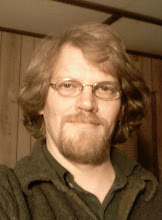Principles and Influences of Eco-Theology
Natural Theology:
The physical world is a creation or emanation of the divine. Just as a work of art reveals something of the artist's nature, so too physical reality reflects and embodies spiritual truths.
The world is a revelation of divine will. Nature can be read as scripture.
Ecological Paradigm:
The fundamental biological system is the organism. Organisms are made up of organs, which are made up of tissues, which are made up of cells, etc. Going the other direction, individual organisms of the same species living together in the same place make up a population. Groups of populations make up a community. The components that define an ecosystem include a non-living environment and the living community that inhabits it.
A system is defined in terms of a static collection of components and the dynamic interactions between them. Complex systems are made up of subsystems, which may themselves be made up of more basic subsystems.
The relationships that define an ecosystem form a web of competition and cooperation between its member populations and individual organisms. This holistic web of life replaces the hierarchical concept of food-chains.
Complexity and Emergence:
There is no simple, reductionist correspondence between different levels of organization. The whole is greater than the sum of its parts.
Life is not found in the inanimate chemicals that make up living organisms; but neither is it an outside force that mysteriously enters into matter. Instead, life emerges from the complex interactions of its non-living components.
Likewise, societies are not reducible to their individual members. Individuals participate in societies with unique cultural and historical influences beyond the personal motivations of their members.
Process Philosophy:
The world is not made up of independent things in themselves. Instead, the world consists only of relationships, which are ongoing interactions.
An entity is the union of a set of interactions. In other words, individuals have no separate identity, apart from our environment. Instead, we are the sum of our relationships with others.
If we say the individual organism is made up of nothing but chemical processes, this is true. If we say the individual is nothing but chemicals, this is false. The living organism emerges from the activity of its inanimate molecules. Likewise, identity emerges from the complex web of interactions between entities.
Liberation Theology:
Because everything is connected, there is no individual salvation, enlightenment or happiness. Consequently, legitimate spiritual struggle always involves social, economic and political elements.
"No Justice, No Peace."
Eco-Theology:
Humanity exists in community with other orders of being. Just as human populations share the biosphere (global ecosystem) with other orders of life (plants, animals, bacteria and fungi), we also participate in a spiritual ecosystem. Instead of a "Great Chain of Being" with God at the top and inanimate matter at the bottom, this spiritual ecology is a holistic web of relationships that includes physical and non-physical orders of being.
We are in community with the gods and other spiritual beings, humanity and other forms of organic life, the land and the cosmos.


1 Comments:
Reads like a blend of Spinoza and the Ari.....I like it.
D
Post a Comment
<< Home